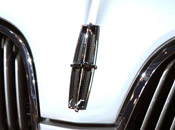View 2009 Lincoln Navigator Insurance Rates
Searching for the cheapest insurance for your Lincoln Navigator can be difficult, but you can use the following methods to make it easier. There is a better way to find insurance online so we’re going to tell you the absolute fastest way to price shop coverage on a Lincoln and find the lowest price from local insurance agents and online providers.
How to compare auto insurance price quotes
Getting a cheap price on 2009 Lincoln Navigator insurance is a fairly straight forward process. Consumers just need to invest a few minutes to compare free insurance quotes to find the company with inexpensive insurance quotes. You can get a good selection of rate quotes in several different ways.
The simplest way consumers can make multiple comparisons would be an industry-wide quote request form (click to open form in new window). This style of form eliminates the need for separate quotes for every company. One simple form gets insurance cost estimates from multiple low-cost companies. Recommended for those who want to invest the least amount of time.
A less efficient way to find better pricing consists of going to the website for every company you want to comare to complete a price quote. For examples sake, let’s assume you want rates from Farmers, Liberty Mutual and American Family. You would be required to take the time to go to each site and repeatedly type in your coverage information, and that’s why the first method is more popular.
For a list of companies in your area, click here.
Which method you use is up to you, but make sure you are using the same quote information for every quote you compare. If you are comparing different limits and deductibles on each one it will be very difficult to decipher which rate is best.
Tailor your auto insurance coverage to you
When buying coverage, there really is not a perfect coverage plan. Each situation is unique.
Here are some questions about coverages that can help discover if you could use an agent’s help.
- Is my vehicle covered by my employer’s policy when using it for work?
- If my 2009 Lincoln Navigator is totaled, can I afford another vehicle?
- Is other people’s property covered if stolen from my vehicle?
- Do I need higher collision deductibles?
- Am I missing any policy discounts?
- Does my insurance cover a custom paint job?
If you’re not sure about those questions but one or more may apply to you then you might want to talk to a licensed insurance agent. To find an agent in your area, simply complete this short form. It is quick, free and may give you better protection.
Insurance specifics
Learning about specific coverages of your insurance policy helps when choosing appropriate coverage at the best deductibles and correct limits. Policy terminology can be ambiguous and coverage can change by endorsement.
Collision insurance
This coverage pays to fix your vehicle from damage from colliding with another vehicle or an object, but not an animal. A deductible applies then the remaining damage will be paid by your insurance company.
Collision coverage pays for claims like driving through your garage door, crashing into a building, rolling your car and sideswiping another vehicle. This coverage can be expensive, so you might think about dropping it from vehicles that are 8 years or older. It’s also possible to increase the deductible to save money on collision insurance.
Auto liability
Liability insurance protects you from damage or injury you incur to people or other property that is your fault. It protects you against claims from other people. Liability doesn’t cover your injuries or vehicle damage.
Liability coverage has three limits: per person bodily injury, per accident bodily injury, and a property damage limit. You commonly see policy limits of 25/50/25 that means you have $25,000 bodily injury coverage, $50,000 for the entire accident, and a limit of $25,000 paid for damaged property.
Liability insurance covers claims such as repair costs for stationary objects, loss of income, medical expenses and court costs. The amount of liability coverage you purchase is your choice, but consider buying higher limits if possible.
Comprehensive coverages
This pays to fix your vehicle from damage that is not covered by collision coverage. A deductible will apply and the remainder of the damage will be paid by comprehensive coverage.
Comprehensive insurance covers things such as hitting a deer, falling objects and a broken windshield. The most a insurance company will pay at claim time is the market value of your vehicle, so if it’s not worth much more than your deductible consider removing comprehensive coverage.
Coverage for medical payments
Personal Injury Protection (PIP) and medical payments coverage pay for immediate expenses like surgery, rehabilitation expenses, EMT expenses, dental work and hospital visits. They are often used to fill the gap from your health insurance plan or if there is no health insurance coverage. They cover all vehicle occupants in addition to any family member struck as a pedestrian. PIP is not available in all states and may carry a deductible
Uninsured and underinsured coverage
Your UM/UIM coverage provides protection when the “other guys” are uninsured or don’t have enough coverage. It can pay for injuries sustained by your vehicle’s occupants and damage to your 2009 Lincoln Navigator.
Because many people only purchase the least amount of liability that is required, their limits can quickly be used up. That’s why carrying high Uninsured/Underinsured Motorist coverage is very important.

